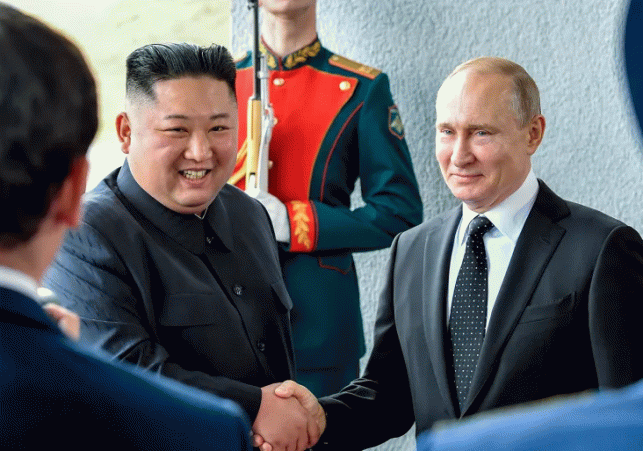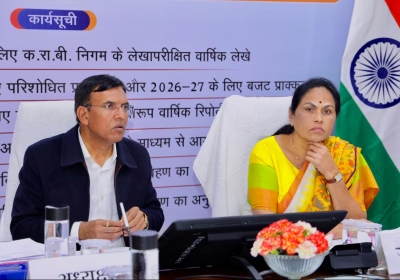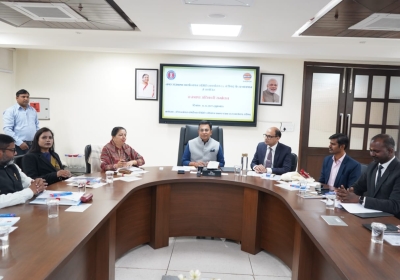
Kim Jong Un invites Putin to North Korea
Kim Jong Un extends invitation to Putin for North Korea visit
North Korean leader Kim Jong Un, currently on a visit to Russia, has extended an invitation to Russian President Vladimir Putin to visit North Korea during their talks. The announcement was made by Pyongyang's state media KCNA (Korean Central News Agency), and it was reported that Putin accepted the invitation.
During their summit, Kim Jong Un expressed "full and unconditional support" for Russia. He also voiced his willingness to foster stable, future-oriented relations between the two countries for the next century. Kim's statements were made amid Western isolation of both North Korea and Russia.
In a veiled reference to the conflict in Ukraine, Kim Jong Un stated, "Russia is currently engaged in a just fight against hegemonic forces to defend its sovereign rights, security, and interests."
Concerns about potential military cooperation
The United States and South Korea have expressed concerns that North Korea might provide weapons and ammunition to Russia, particularly given hints of military cooperation discussed between Kim Jong Un and Vladimir Putin. However, both Moscow and Pyongyang have denied any such intentions.
ALSO READ: India's response to China's new map and tensions over Taiwan visit
The US State Department emphasized that it would not hesitate to impose additional sanctions on both Russia and North Korea if they engage in any arms deals that could violate U.N. Security Council resolutions.
Summit focus: strategic and tactical cooperation
The summit between Kim Jong Un and Vladimir Putin lasted over four hours and concluded with a commitment to further strengthen strategic and tactical cooperation in the face of military threats and provocations by imperialist forces.
ALSO READ: Japanese man's remarkable transformation into a 'dog' fuels aspirations of love and stardom
While the specifics of their discussions were not disclosed, the meeting highlights the ongoing diplomatic engagement between North Korea and Russia, as well as the complex geopolitical dynamics in the region.





